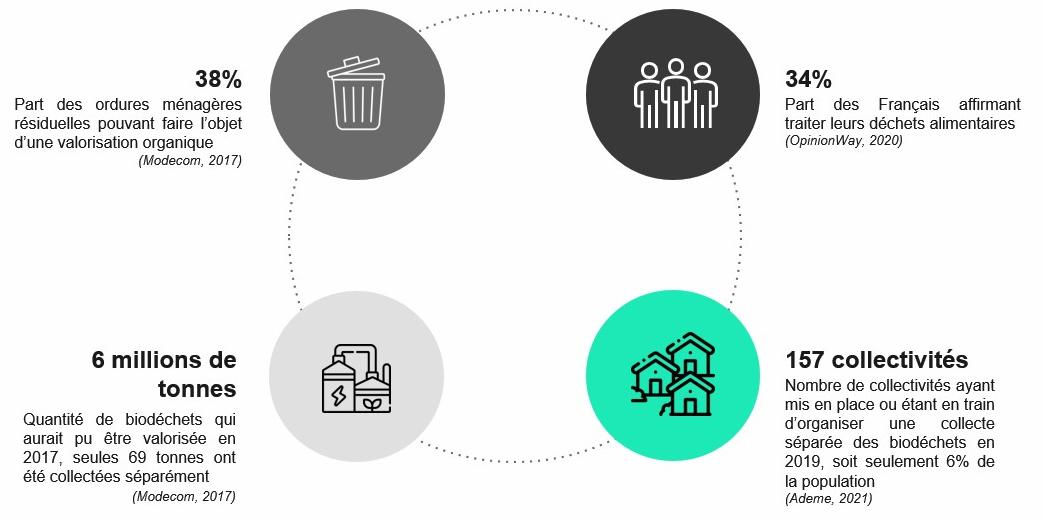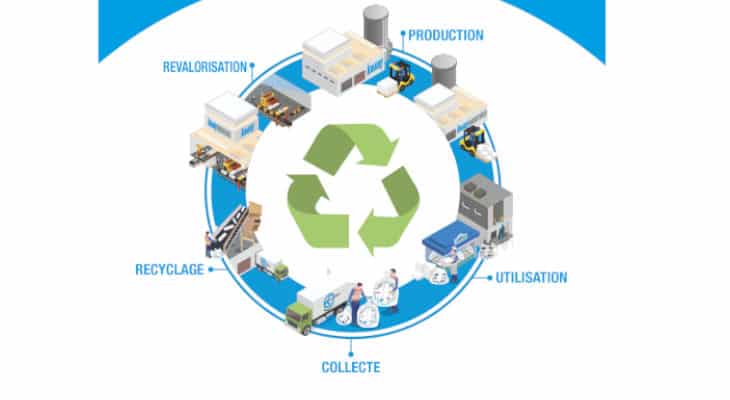The management of municipal waste represents a colossal challenge for communities, both operationally and environmentally. At a time when ecological awareness is becoming a priority, the optimization of collection routes proves to be an essential lever to reduce our carbon footprint. The rise of *Industry 4.0 technologies*, such as artificial intelligence, the Internet of Things, and data analysis, is revolutionizing this approach. Through the installation of sensors in containers and the use of predictive algorithms, it becomes possible to anticipate collection needs and design more efficient routes, thus reducing the number of kilometers traveled. This approach is not limited to improving operational efficiency; it also contributes to greater user awareness of their consumption and sorting habits. By integrating these innovative tools, communities must rethink their waste management strategy, placing sustainability and the minimization of environmental impacts at the heart of their considerations. The union of circular economy and practices based on advanced technologies opens the way for intelligent solutions for a sustainable future.

In a global context where sustainability and the environmental impact of human activities have become major concerns, optimizing municipal waste collection routes emerges as a crucial issue. By integrating Industry 4.0 technologies, municipalities can now use innovative strategies to improve the efficiency of their services, reduce costs, and minimize their ecological footprint.
Table des matières
ToggleTechnological advancements: A revolution in the waste sector
With the development of cyber-physical systems and the Internet of Things (IoT), modern tools are now available to waste managers. These technologies allow real-time management of collection operations. For example, the use of sensors embedded in waste containers analyzes their fill levels and sends precise data to collection teams. According to a recent study, the integration of these systems could reduce operating costs for waste services by up to 20%.
Furthermore, the data collected can be analyzed to predict collection trends based on the days of the week and seasons. This offers greater visibility into the specific needs of different neighborhoods within a municipality. Municipalities such as San Francisco and Amsterdam have already implemented these devices, succeeding in improving their responsiveness while reducing costs related to unnecessary trips by collection trucks.
Environmental awareness and green technologies
Industry 4.0 technologies also resonate with a growing ecological awareness. By optimizing collection routes, these innovations reduce not only economic costs but also greenhouse gas emissions. For example, studies show that each kilometer of travel reduced by collection trucks generates a significant decrease in carbon emissions, thus contributing to the fight against climate change.
As an example, the American platform Rubicon Global has managed to optimize its services by integrating smart mapping to define the most effective routes. Thanks to this innovative technology, they have reduced their carbon emissions by over 45% over the past three years.
Municipalities that adopt these technologies do not just score points in terms of operational efficiency. They also enhance their eco-brand image, attracting more and more environmentally conscious residents. This digital transformation creates a favorable dynamic for a short-circuit economy that meets the standards of the circular economy.
Practical strategies for effective implementation
Even though the benefits of these technologies are undeniable, their implementation requires strategic thinking. First, it is essential to assess existing infrastructure and determine the specific needs of each area. To do this, it is advisable to conduct a feasibility study to identify critical points of current operations.
Next, training for teams is essential. Drivers and collection personnel must be comfortable with the technological equipment and understand the advantages of smart systems. Awareness campaigns can also play a key role in this transition, explaining the environmental and economic benefits of route optimization.
Finally, the analysis of collected data must be a continuous process. By using advanced analytical tools, municipalities can identify trends, anticipate future needs, and adjust their operations accordingly. The exploitation of big data could even enable the development of optimization iterators that refine over time, making waste management even more effective.
To delve deeper into this topic, several concrete case studies can serve as inspiration. For example, some cities have managed to reduce their collection costs by readjusting their operational logic. By integrating data on fill rates, collection distance, and travel times, route planning systems have allowed for a decrease in necessary resources while improving the service delivered to citizens.
Experts agree that the adoption of these practices could transform the landscape of waste management, shifting from a reactive approach to a proactive approach. Thus, sustainable solutions become not only possible but also achievable in the short term.
At the same time, connecting different stakeholders, such as logistics companies, researchers, and government agencies, fosters the necessary synergies to propel these initiatives forward. Moreover, it becomes crucial to stay abreast of the latest trends and technological solutions to harness every innovation capable of strengthening this approach.
In a constantly evolving world, the intersection between Industry 4.0 and waste management represents a unique opportunity to create value while taking care of our planet. The conscious adoption of these technologies must therefore continue to progress and be accompanied by reflections on the transformation of human behaviors and integrated systems.
For more information on the impact of Industry 4.0 technologies on waste management, feel free to consult additional resources such as these case studies on route optimization or research reports on sustainability.
Optimizing municipal waste collection routes is not just a matter of efficiency. It is a powerful lever to encourage a culture of sustainability, raise citizen awareness, and contribute positively to the health of our environment.

FAQ on the optimization of municipal waste collection routes
What is the main objective of optimizing municipal waste collection routes? The main objective is to reduce the environmental impact by improving the efficiency of collection operations.
How do Industry 4.0 technologies contribute to this optimization? Industry 4.0 technologies, such as artificial intelligence and IoT, enable the planning of optimal routes based on real-time data on waste levels.
What are the environmental benefits associated with route optimization? This allows for decreased greenhouse gas emissions, reduced fuel consumption, and improved resource management.
How can optimization influence citizens’ environmental awareness? By making waste collection more efficient, citizens can witness the positive actions taken for the environment, thereby enhancing their ecological consciousness.
What specific Industry 4.0 technologies are applied in this field? Artificial intelligence systems, IoT sensors, and fleet management software are commonly used to optimize routes.
What role does data analysis play in optimizing waste management operations? Data analysis allows for identifying patterns and trends that help refine collection strategies and anticipate future needs.
Are there concrete examples of cities that have implemented these technologies? Yes, several cities around the world are already using these technologies to improve their waste management and reduce their ecological footprint.





